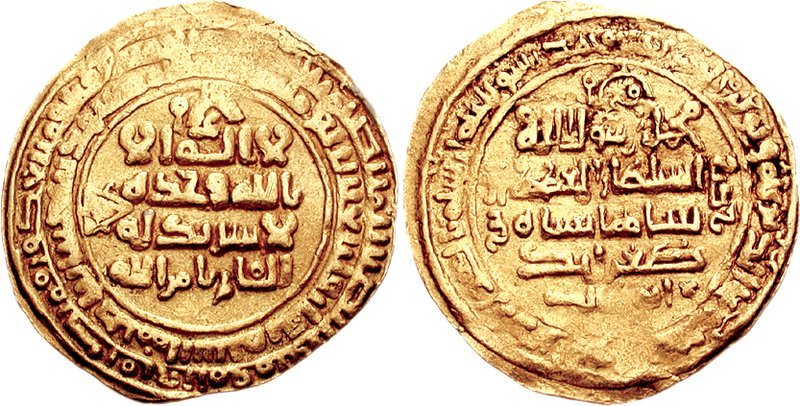|
Dehqan
The ''dehqân'' (; , ''dihqân'' in Classical Persian) or ''dehgân'' (; ) were a class of land-owning magnates during the Sasanian The Sasanian Empire (), officially Eranshahr ( , "Empire of the Iranians"), was an Iranian empire that was founded and ruled by the House of Sasan from 224 to 651. Enduring for over four centuries, the length of the Sasanian dynasty's reign ... and early Islamic period, found throughout Iran, Iranian lands. The ''dehqans'' started to gradually fade away under the Seljuk Empire, Seljuks and Qarakhanids, due to the increase of the ''iqta''' (land grants) and the decline of the landowning class. By the time of their dissolution, they had played a key role in preserving the Iranian national identity. Their Islamization and cultural Iranianization of the Turks led to the establishment of the Iranian essence within the Islamic world, something which would continue throughout the Middle Ages and far into modern times. Etymology The term ''dehqân' ... [...More Info...] [...Related Items...] OR: [Wikipedia] [Google] [Baidu] |
Khosrau I
Khosrow I (also spelled Khosrau, Khusro or Chosroes; ), traditionally known by his epithet of Anushirvan ("the Immortal Soul"), was the Sasanian King of Kings of Iran from 531 to 579. He was the son and successor of Kavad I (). Inheriting a reinvigorated empire at war with the Byzantines, Khosrow I signed a peace treaty with them in 532, known as the Perpetual Peace, in which the Byzantine emperor Justinian I paid 11,000 pounds of gold to the Sasanians. Khosrow then focused on consolidating his power, executing conspirators, including his uncle Bawi. Dissatisfied with the actions of the Byzantine clients and vassals, the Ghassanids, and encouraged by Ostrogoth envoys from Italy, Khosrow violated the peace treaty and declared war against the Byzantines in 540. He sacked the major city of Antioch and deported its population to Persia. In 541, he invaded Lazica and made it an Iranian protectorate, thus initiating the Lazic War. In 545, the two empires agreed to halt the wars in M ... [...More Info...] [...Related Items...] OR: [Wikipedia] [Google] [Baidu] |
Ferdowsi
Abu'l-Qâsem Ferdowsi Tusi (also Firdawsi, ; 940 – 1019/1025) was a Persians, Persian poet and the author of ''Shahnameh'' ("Book of Kings"), which is one of the world's longest epic poetry, epic poems created by a single poet, and the greatest epic of Persian-speaking people, Persian-speaking countries. Ferdowsi is celebrated as one of the most influential figures of Persian literature and one of the greatest in the history of literature. Name Except for his ''kunya (Arabic), kunya'' ( – , meaning 'father of Qasem') and his Takhallus, pen name ( – ''Ferdowsī'', meaning 'Paradise, paradisic'), nothing is known with any certainty about his full name. According to Djalal Khaleghi-Motlagh, the information given by the 13th-century author Bundari about Ferdowsi's name should be taken as the most reliable. Bundari calls the poet al-Amir al-Hakim Abu'l-Qasem Mansur ibn al-Hasan al-Ferdowsi al-Tusi. From an early period on, he has been referred to by different additional na ... [...More Info...] [...Related Items...] OR: [Wikipedia] [Google] [Baidu] |
Sasanian Empire
The Sasanian Empire (), officially Eranshahr ( , "Empire of the Iranian peoples, Iranians"), was an List of monarchs of Iran, Iranian empire that was founded and ruled by the House of Sasan from 224 to 651. Enduring for over four centuries, the length of the Sasanian dynasty's reign over ancient Iran was second only to the directly preceding Arsacid dynasty of Parthia. Founded by Ardashir I, whose rise coincided with the decline of Arsacid influence in the face of both internal and external strife, the House of Sasan was highly determined to restore the legacy of the Achaemenid Empire by expanding and consolidating the Iranian nation's dominions. Most notably, after defeating Artabanus IV of Parthia during the Battle of Hormozdgan in 224, it began competing far more zealously with the neighbouring Roman Empire than the Arsacids had, thus sparking a new phase of the Roman–Iranian Wars. This effort by Ardashir's dynasty ultimately re-established Iran as a major power of late an ... [...More Info...] [...Related Items...] OR: [Wikipedia] [Google] [Baidu] |
Tahirid Dynasty
The Tahirid dynasty (, ) was an Arabized Sunni Muslim dynasty of Persian dehqan origin that ruled as governors of Khorasan from 821 to 873 as well as serving as military and security commanders in Abbasid Baghdad until 891. The dynasty was founded by Tahir ibn Husayn, a leading general in the service of the Abbasid caliph al-Ma'mun. For his support of al-Ma'mun in the Fourth Fitna, he was granted the governance of Khorasan. The Tahirids, however, were not an independent dynasty—according to Hugh Kennedy: "The Tahirids are sometimes considered as the first independent Iranian dynasty, but such a view is misleading. The arrangement was effectively a partnership between the Abbasids and the Tahirids." Indeed, the Tahirids were loyal to the Abbasid caliphs and in return enjoyed considerable autonomy; they were in effect viceroys representing Abbasid rule in Persia. The tax revenue from Khorasan sent to the caliphal treasury in Baghdad was perhaps larger than those collect ... [...More Info...] [...Related Items...] OR: [Wikipedia] [Google] [Baidu] |
Marzpan
Marzbān, or Marzpān (Middle Persian: 𐭬𐭫𐭱𐭰𐭠𐭭𐭯 transliteration: mrzwpn, derived from Middle Persian: 𐭬𐭫𐭱 ''marz'' "border, boundary" and the Middle Persian suffix: 𐭡𐭭𐭯 ''-pān'' "guardian"; Modern Persian: ''Marzbān'') were a class of margraves, warden of the marches, and by extension military commanders, in charge of border provinces of the Parthian Empire (247 BC–224 AD) and mostly Sasanian Empire (224–651 AD) of Iran. Etymology The Persian word ''marz'' is derived from Avestan ''marəza'' "frontier, border"; ''pān/pāvan'' is cognate with Avestan and Old Persian ''pat'' "protector". The word was borrowed from New Persian into Arabic as ''marzubān'' (plural ''marāziba''). " Al-Marzubani" () has been used as a '' nisba'' (family title) for some Iranian families whose ancestor was a marzbān. The prominent Islamic scholar Abu Hanifa, whose formal name is given in Islamic sources as Nu'man ibn Thabit ibn Zuta ''ibn Marzubān'' (), ... [...More Info...] [...Related Items...] OR: [Wikipedia] [Google] [Baidu] |
Iqta'
An iqta () and occasionally iqtaʿa () was an Islamic practice of farming out tax revenues yielded by land granted temporarily to army officials in place of a regular wage; it became common in the Muslim empire of the Caliphate. Iqta has been defined in Nizam-al-Mulk's Siyasatnama. Administrators of an ''Iqta'' were known as ''muqti'' or ''wali''. They collected land revenue and looked after general administration. Muqtis (, "holder of an iqtaʿ") had no right to interfere with the personal life of a paying person if the person stayed on the muqtiʿ's land. They were expected to send the collected revenue (after deducting collection and administration charges) to the central treasury. Such an amount to be sent was called ''Fawazil''. Theoretically, ''iqtas'' were not hereditary by law and had to be confirmed by a higher authority like a sultan or king. However, it was made hereditary in Islamic India by Firoz Tughlaq. Individual iqtaʿ holders in Middle Eastern societies had lit ... [...More Info...] [...Related Items...] OR: [Wikipedia] [Google] [Baidu] |
Toghril Beg
Abu Talib Muhammad Tughril ibn Mika'il (), better known as Tughril (; also spelled Toghril / Tughrul), was a Turkoman"The defeat in August 1071 of the Byzantine emperor Romanos Diogenes by the Turkomans at the battle of Malazgirt (Manzikert) is taken as a turning point in the history of Anatolia and the Byzantine Empire. chieftain, who founded the Seljuk Empire, ruling from 1037 to 1063. Tughril united many Turkoman warriors of the Central Asian steppes into a confederacy of tribes and led them in conquest of Khorasan and eastern Persia. He would later establish the Seljuk Sultanate after conquering Persia and taking the Abbasid capital of Baghdad from the Buyids in 1055. Tughril relegated the Abbasid Caliphs to state figureheads and took command of the caliphate's armies in military offensives against the Byzantine Empire and the Fatimids in an effort to expand his empire's borders and unite the Islamic world. Before the advent of the Seljuks, Persia was divided between sever ... [...More Info...] [...Related Items...] OR: [Wikipedia] [Google] [Baidu] |
Social Class In The Sasanian Empire
Social organisms, including human(s), live collectively in interacting populations. This interaction is considered social whether they are aware of it or not, and whether the exchange is voluntary or not. Etymology The word "social" derives from the Latin word ''socii'' ("allies"). It is particularly derived from the Italian ''Socii'' states, historical allies of the Roman Republic (although they rebelled against Rome in the Social War of 91–87 BC). Social theorists In the view of Karl Marx,Morrison, Ken. ''Marx, Durkheim, Weber. Formations of modern social thought'' human beings are intrinsically, necessarily and by definition social beings who, beyond being "gregarious creatures", cannot survive and meet their needs other than through social co-operation and association. Their social characteristics are therefore to a large extent an objectively given fact, stamped on them from birth and affirmed by socialization processes; and, according to Marx, in producing and reproduci ... [...More Info...] [...Related Items...] OR: [Wikipedia] [Google] [Baidu] |
People From The Seljuk Empire
The term "the people" refers to the public or Common people, common mass of people of a polity. As such it is a concept of human rights law, international law as well as constitutional law, particularly used for claims of popular sovereignty. In contrast, a people is any plurality of Person, persons considered as a whole. Used in politics and law, the term "a people" refers to the collective or community of an ethnic group or nation. Concepts Legal Chapter One, Article One of the Charter of the United Nations states that "peoples" have the right to self-determination. Though the mere status as peoples and the right to self-determination, as for example in the case of Declaration on the Rights of Indigenous Peoples, Indigenous peoples (''peoples'', as in all groups of indigenous people, not merely all indigenous persons as in ''indigenous people''), does not automatically provide for independence, independent sovereignty and therefore secession. Indeed, judge Ivor Jennings i ... [...More Info...] [...Related Items...] OR: [Wikipedia] [Google] [Baidu] |
People From The Sasanian Empire
The term "the people" refers to the public or common mass of people of a polity. As such it is a concept of human rights law, international law as well as constitutional law, particularly used for claims of popular sovereignty. In contrast, a people is any plurality of persons considered as a whole. Used in politics and law, the term "a people" refers to the collective or community of an ethnic group or nation. Concepts Legal Chapter One, Article One of the Charter of the United Nations states that "peoples" have the right to self-determination. Though the mere status as peoples and the right to self-determination, as for example in the case of Indigenous peoples (''peoples'', as in all groups of indigenous people, not merely all indigenous persons as in ''indigenous people''), does not automatically provide for independent sovereignty and therefore secession. Indeed, judge Ivor Jennings identified the inherent problems in the right of "peoples" to self-determination, as i ... [...More Info...] [...Related Items...] OR: [Wikipedia] [Google] [Baidu] |


